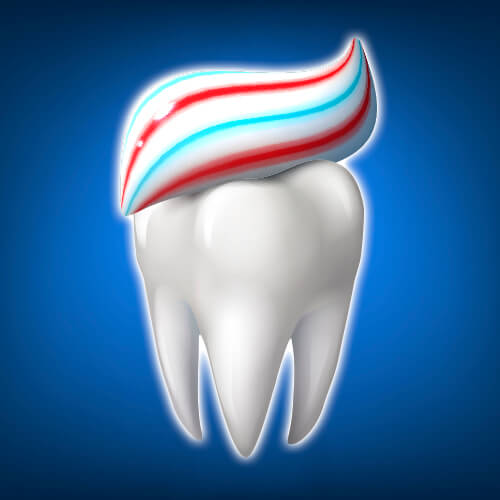Temporary teeth
The temporary teeth are those teeth which first erupt at the age of 6 – 8 months. The not only help for the masticatory process of the child but they also participate in the development of the increasing of the jaws. The temporary teeth are less mineralized and the tooth decay develops faster and deeper. Often parents decide that it is not necessary the temporary teeth of the children to be treated because they will be changed but it is not like this! If the tooth decay goes deeper, different complications can occur – pulpitis, periodontitis, and gangrene. These conditions lead to disordered eating, pain, bad breath, earlier loss of temporary teeth, disorders of the right development of the jaws and incorrect eruption of the permanent teeth.
The first visit to the dentist shall be approximately made when the first temporary tooth of the child erupts. It can be then found out the number of the erupted teeth and their condition. At that time the parents are given advices about the oral hygiene and the formation of eating habits. All temporary teeth have to erupt until the child reaches 2 years and 5 months. After this age the regular medical examinations shall be made every 6 months. The first permanent teeth erupt at the age of 6.
Sealants
After the eruption of the first permanent teeth of the child the tooth decay turns into often met problem. This is caused by the incomplete mineralization of the enamel in the grooves (fissures) of the tooth. When washing the brush cannot completely remove the tooth plaque because the fissures are very deep and narrow. Because of this we recommend the method of sealing.
-
When does the sealing method have to be applied?
- In deep fissures.
- Newly erupted molars and premolars.
- Preventing the development of tooth decay in permanent teeth.
- In children with affected by tooth decay temporary dentition.
-
Advantages of the sealants:
- It is not necessary the tooth to be filed in advance.
- They resist abrasion and recession.
- Permanent colour.
- Resistant to moisture.
- They fast get hard.
- There are included fluorides which increase the mineralization of enamel.
- They last from 2 to 8 years.
-
What is the benefit from the sealants?
-
The method of sealing is much cheaper in comparison with the filling of a tooth. In this way the teeth are 100% protected against tooth decay of the biting surfaces.
-
What is the proper age for sealing?
-
The best time for sealing, when the result of this is more effective is in children at the age of 6 – 12. Molars are sealed when they grow. If the tooth of the child is filled, it is not necessary the same to be sealed.
-
Is sealing harmless?
-
Yes! It is a very short, safe, and unpainful procedure.

